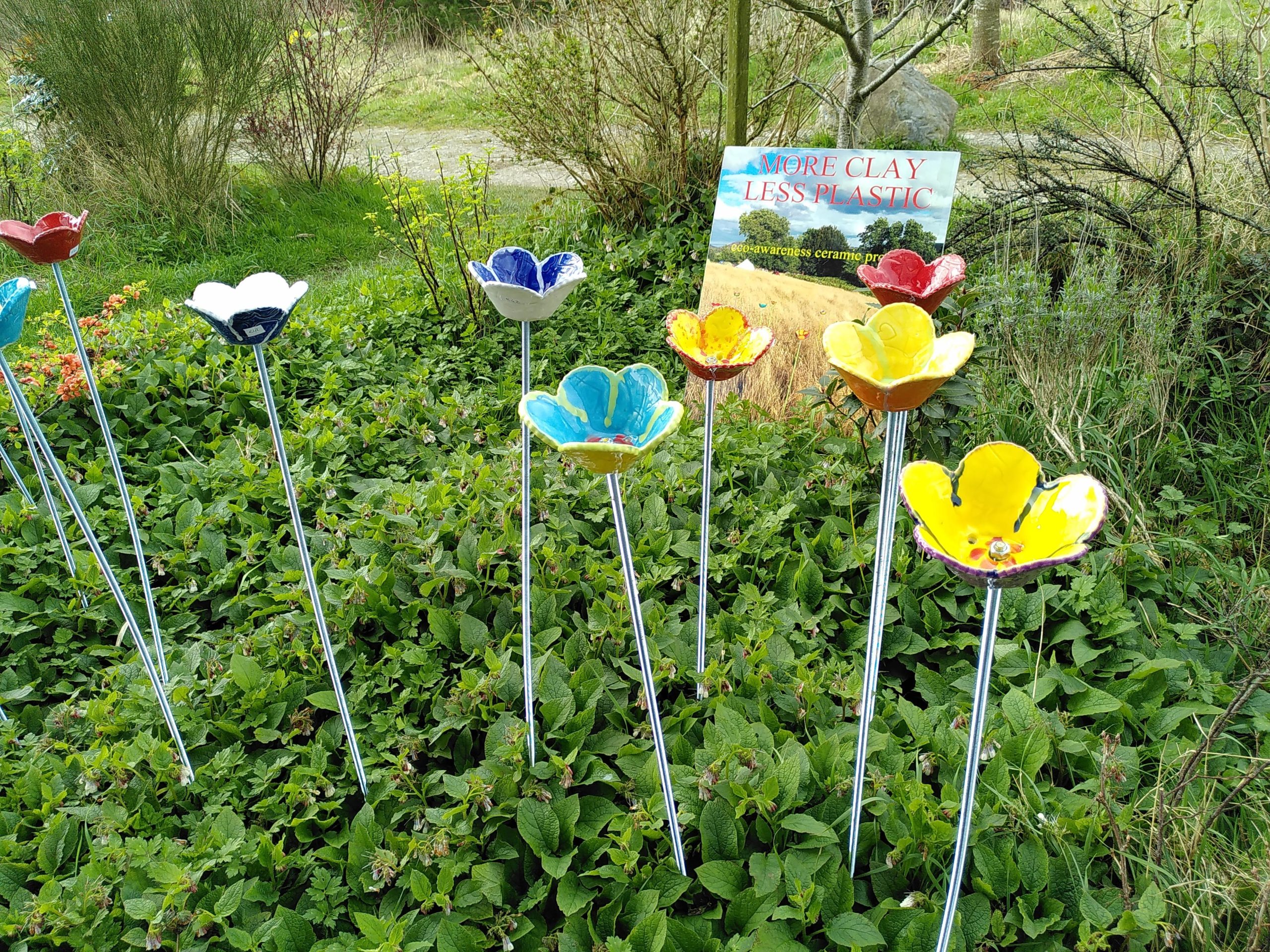
Another rural is possible! ARC2020 and friends were in Cloughjordan Ecovillage, Ireland on March 25-26 for the annual Feeding Ourselves gathering, which takes food and farming as an entry point for moving towards fairer, more caring communities. What are the ingredients to cook up transformative system change? How can we build bridges between islands of practice? Why do we need to keep talking about gender? Louise Kelleher gives us a taste of conversations and connections at Feeding Ourselves 2023.
I was in the mood for dancing. First, though, I braced myself for a sombre presentation on the curlew, one of Ireland’s most threatened farmland birds.
It wasn’t what I expected. The curlew inspires a cultural heritage all of its own, which may be key to saving it from extinction. The talk was an awe-filled tribute to this magnificent wader. Some unintentional comedy helped, with zany technical hitches to remind us that humour and resilience are needed in addressing the biodiversity crisis.
That is the magic of Cloughjordan Ecovillage, and its annual think-in Feeding Ourselves. In its 12th edition this year, this springtime gathering brings together agroecological farmers and workers, environmental advocates, and people active in fair food systems and rural regeneration. Connections are woven year to year to ensure that, increasingly, the Feeding Ourselves magic lasts all year round.
Feeding Ourselves 2023 – Diversified Diversification in Action
Building our own table
It is on this fertile ground that Talamh Beo was conceived. The Irish chapter of European Coordination Via Campesina, founded in 2019, Talamh Beo is a farmer-led and citizen-supported movement to re-territorialise food systems. It advocates for agroecology as an alternative to patriarchal values that prioritise profit over people.
For Talamh Beo, gender equality is not just a human right; it’s necessary to the struggle for food sovereignty. Equal representation of women and men has been a priority from the get-go: rather than waiting for a seat at the table, let’s build our own table. The movement’s research on gender mainstreaming argues that women in agriculture have much to bring to the table, not least care and innovation, to spearhead a move away from destructive practices.
Growing the community of practice
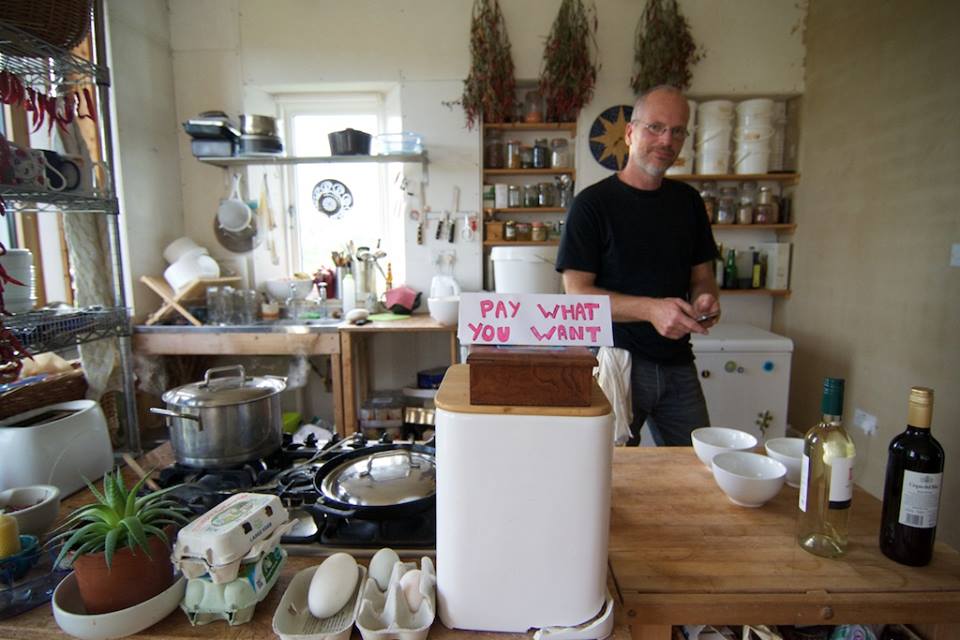
Of course, it’s not just women that can bring these elements of care and innovation – and not just agriculture. We all eat. The idea behind Feeding Ourselves is to draw new voices into the conversation around food sovereignty. More than one attendee acknowledged: “I’m new to this”. There’s a good gender balance at this year’s event. At the same time, the need for broader diversity was felt and acknowledged. Challenges remain in representation of farmers under 30, and to better represent Ireland’s growing multicultural population.
As well as an annual event, Feeding Ourselves is a growing community of practice. Where do we go next to build the movement for food systems based on agroecology, solidarity, fairness, community, diversity? And importantly, how can we take the work out of building the network?
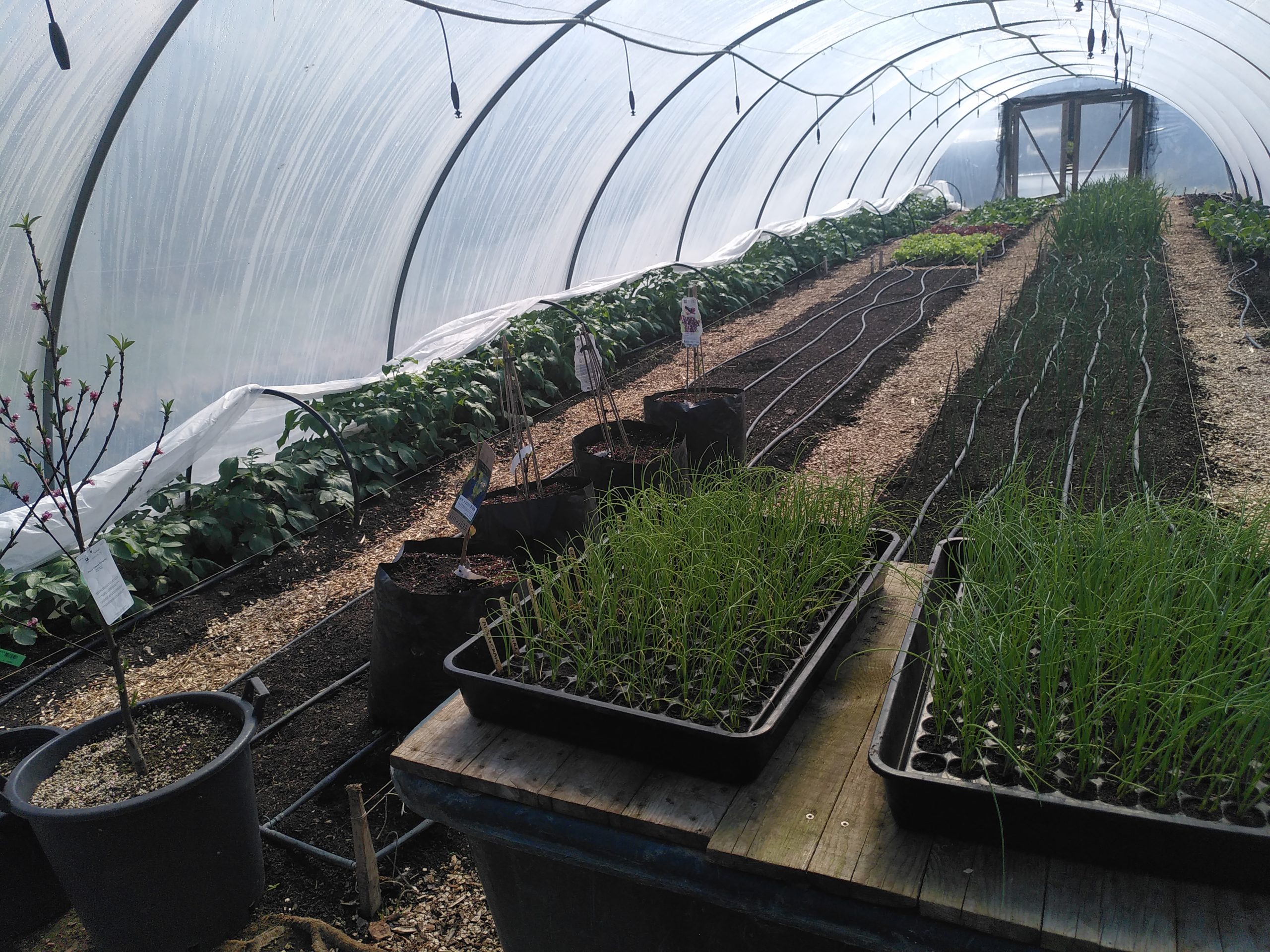
“Are we pushing against an open door?”
Islands of practice exist. There is a need for connection and engagement. A need to change the narrative because, in reality, there is a huge appetite for change. Much of the work lies in ensuring the visibility of what is being done on the ground, at community level, in these islands of practice. And in building bridges.
A lazy narrative persists of two camps – environmentalists versus farmers. Instead of buying into this divisive narrative, we can lean into the pride and dignity that many farmers take in their role as custodians of the land. As one participant commented:
“There’s a lot of environmentalism in farmers over 70. Are we pushing against an open door?”
Farmers are intimately linked to climate and nature. Their livelihood depends on it. But there is also a passion for caring for the living world that surrounds us. There is much common ground to be found in this shared love of the land. Similarly, if regenerative agriculture is increasingly being spoken about in ‘right-wing settings’, could this be seen as an opportunity to push on another door, rather than a threat?
Caring for nature is essential to our collective wellbeing, as is caring for one another. At Feeding Ourselves, the irrepressible catering team includes young people who have come to the ecovillage to “escape the rat race” in Dublin and other cities – calling into question another narrative, that of urban-rural divide. There is dignity in the work of feeding good, locally sourced food to people who appreciate where their food comes from, and this team clearly takes pride in it.
“Can you bring everybody up a little bit together?”
Pride in “our indigenous superfoods” can be another entryway to changing the narrative. What is good food? Nutrition, soil biology and heritage all play a part. Across the water in the UK, the concept of food equality is gaining traction.
In Ireland, the notion of care permeates the concept of Food Hubs, which aim to benefit the entire local economy: “Can you bring everybody up a little bit together?”
Here in the ecovillage, the food hub made the choice to prioritise local over organic. Local ladies in Cloughjordan town bake cakes that are sold through the platform. Giving local producers a route to market is considered more important than insisting on certified organic ingredients.
The Cloughjordan food hub also carries local crafts. Customers pick up their purchases in the WeCreate enterprise centre, venue for the annual Feeding Ourselves extravaganza, and a hive of innovation and creativity all year round. Local youngsters came with an idea of upcycling metal scraps from the Fab Lab into keyrings. The idea grew into a microbusiness thanks to this route to market.
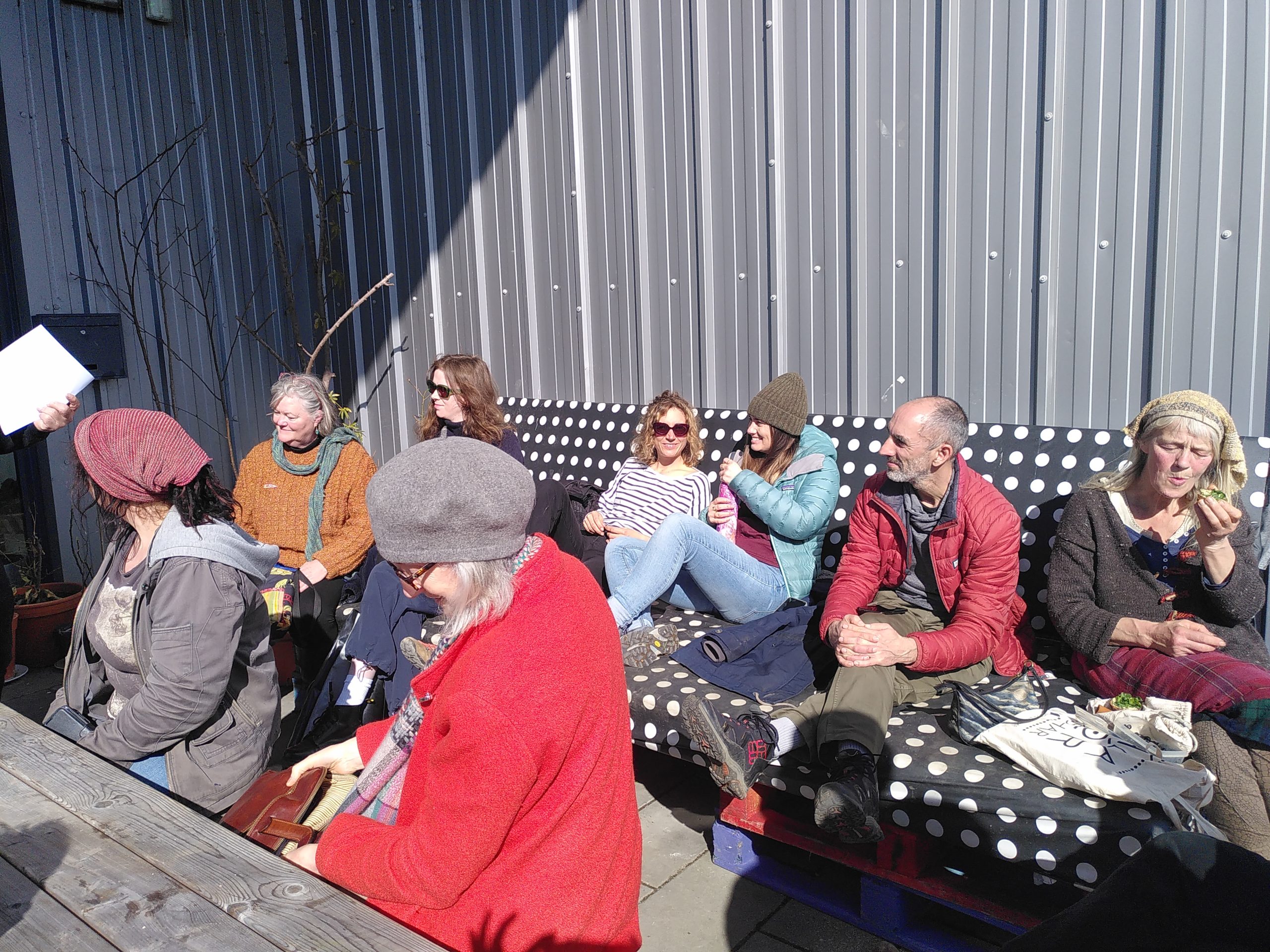
Feeding more than our bellies
Food feeds more than our bellies; it’s key to our shared humanity and our connection to the natural world. At Feeding Ourselves, diversity of representation is echoed by ecological diversity on farms, as well as farmers diversifying their activities.
All together it makes a kind of magic that’s hard to put into words. It looks like a rainbow of wildflowers from a ‘seed to sweater’ plant dye workshop. It smells like a hearty bowl of soup made from vegetables harvested early this morning in this place, and freshly baked sourdough from the village bakery. It tastes like the hoppy terroir of Maurice Deasey’s beers produced right here in North Tipperary, in his on-farm brewery and malthouse, and presented to us with palpable pride.
It sounds like deep listening and the call of the curlew, listening to each other and to the more-than-human, before it’s too late, before divides become irreconcilable, and before crises overwhelm us. And echoing back what we’ve heard as beautiful music that honours the butterfly, the swallow, performed by local musicians whose ears are attuned to the nature that surrounds them here in the Irish midlands.
It feels like dancing together after an intense and invaluable day of conversations. To bring as many people as possible on board, you have to make it fun – as our friends in Plessé reminded us. We all got to dance that night. The door to the dance floor was wide open.
These visceral shared moments serve to cement connections. It’s more urgent than ever to find common ground, as we face into the multiple crises of climate change, biodiversity, pollution and cost of living. Love for the land and for the life support systems of our planet are fertile ground on which to start. Like the farmers at Feeding Ourselves, the movement is diversifying to become stronger and more resilient. Let’s keep opening that door a little wider.
More on Feeding Ourselves
Feeding Ourselves 2022 – Crises Compound, Food Sovereignty Movement Mobilises
Rural Ireland on the Move – new report on Just Transition and Diversification launched.
Cultivating The Future Together – ARC’s Rural Resilience Gathering in France
Rural Dialogues | The Three Conditions of Sustainable Rural Digitalisation
Ireland’s Our Rural Future – a rural digitisation gold standard?
Rural Dialogues | What are the 3 A’s of Feeding Ourselves in Ireland?



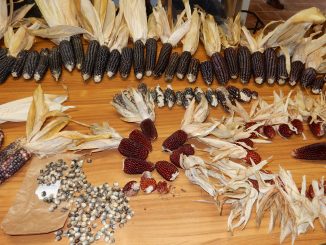
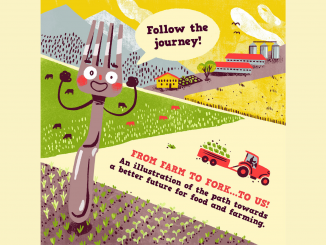
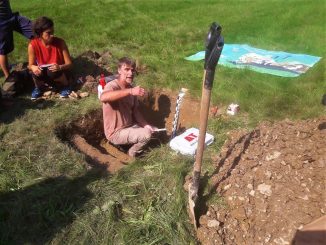
1 Trackback / Pingback
Comments are closed.